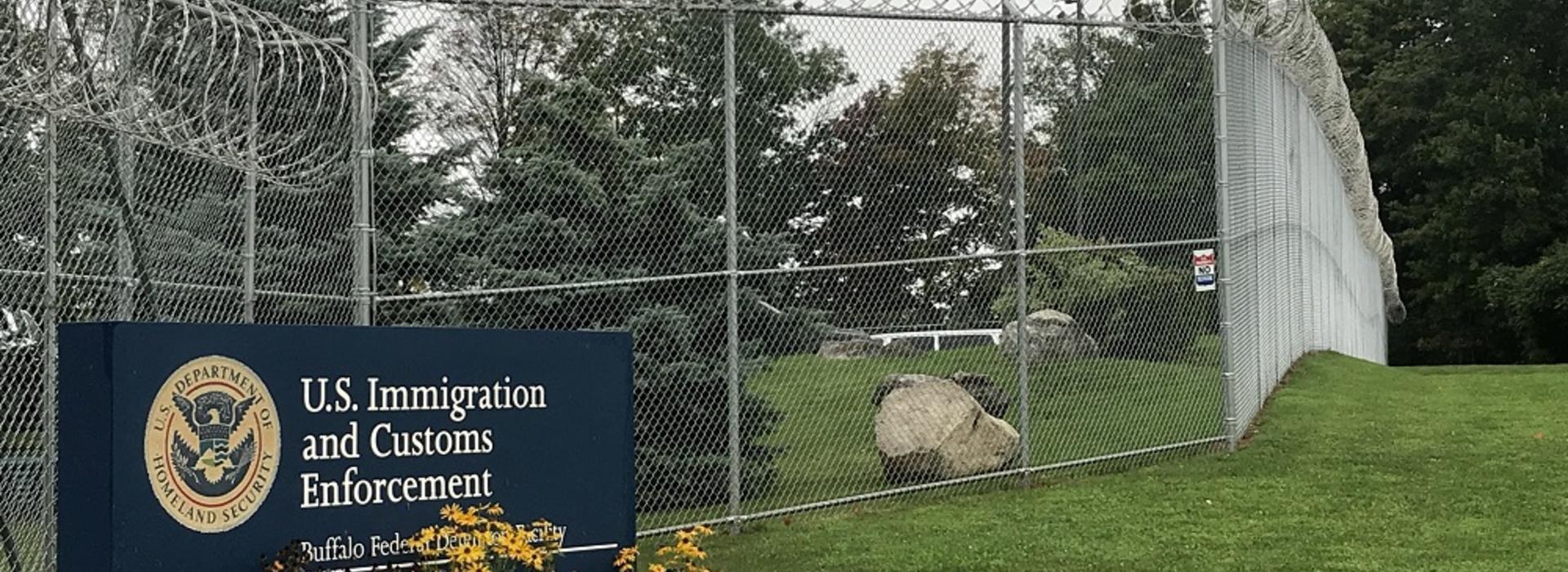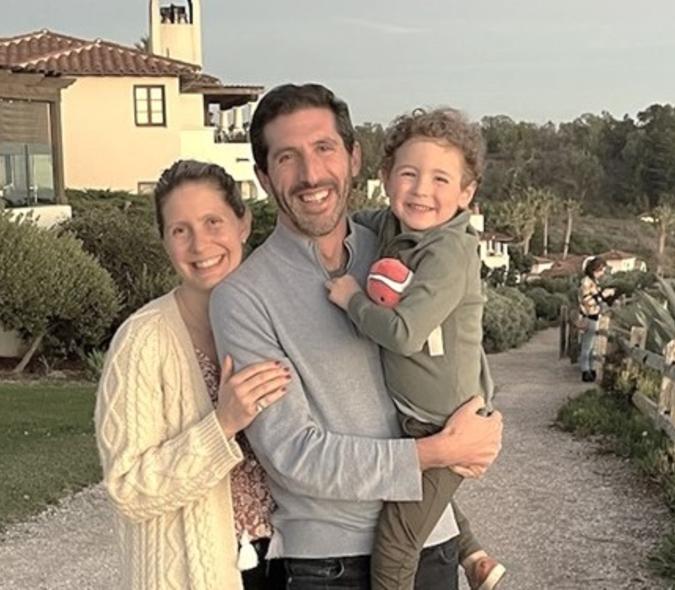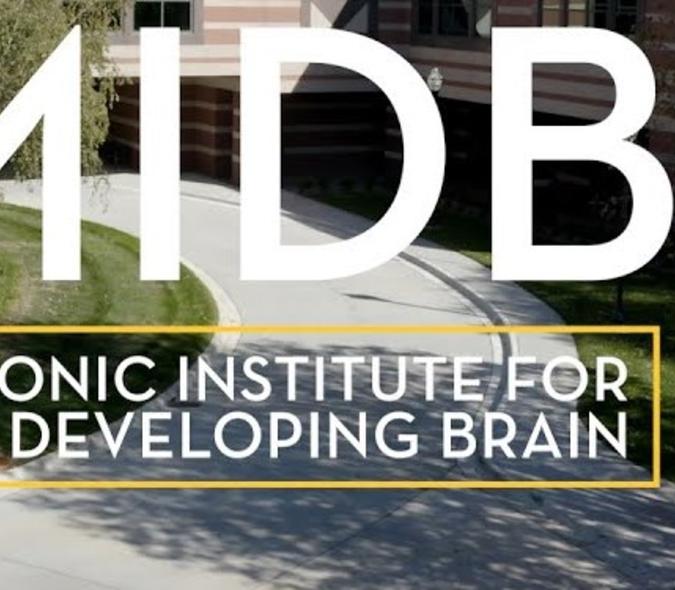
Creating a workshop that helps medical and legal professionals understand the need for mental health evaluations in immigration
The last two decades have seen geopolitical crises in many parts of the world that displaced people from their homes. Some of those people end up at our borders and their experience in getting there can often be harrowing. But arriving at the border is just the beginning.

“Many who come to the United States get entangled in the immigration court system,” said Department of Psychiatry and Behavioral Sciences Adjunct Associate Professor Chinmoy Gulrajani (pictured at left), MD. “As of November 2020, there were about 1.3 million immigration cases pending before the courts. In 2019, immigration courts in this country rendered decisions in only about 67,000 cases.”
Time in detention
It takes an average of 700 days to dispose of one of these immigration cases. As a result, “Some of those coming to this country spend up to two years in a detention center, which for all practical purposes looks like a prison,” said Gulrajani. “They haven’t committed a crime…they were just crossing the border seeking refuge.”

Kathy Moccio (pictured at right), JD, a visiting assistant professor of clinical law with the U of M’s James H. Binger Center for New Americans, has more than 25 years’ experience practicing immigration law. “Minnesota has always been a home to a diverse group of immigrants,” she said. “People may come in from other countries for a variety of reasons, for protection from persecution, to unite with family, or for jobs that require a certain amount of education and experience.”
Some have mental illness
A good portion of the refugees suffer from the effects of trauma, noted Gulrajani. “They don’t know the language and they don’t have legal representation or understand the legal system,” he added. “During the initial immigration court hearing, they can file for asylum but if it’s denied, it becomes just like any other legal proceeding. That’s when questions about their mental health frequently come into play.”
About two years ago, Moccio began talking with Assistant Professor Deanna Bass, MD, of the Department of Psychiatry and Behavioral Sciences, about training medical professionals to help serve the immigration community and to help them understand what immigrants go through. They then discussed the notion of training medical professionals to do mental health assessments for the immigrant population. “It’s not uncommon for people to exhibit mental health problems when they’re in detention,” said Moccio. “Without assessment and intervention, their ability to stay in this country is threatened.” In addition, this may be the first time in the immigrant’s life that their mental health issues have been identified, noted Gulrajani.
This collaboration is important

According to Linus Chan (pictured at left), Moccio’s colleague at the Binger Center and an Associate Clinical Professor of Law at the U, this kind of work is important because as the impact of trauma on this population becomes better understood, collaborative relationships with physicians and legal professionals need to be developed. “There are very few programs that recognize the need for lawyers and the courts to understand and know how to grapple with people who suffer from mental health issues in detention,” he said. “The system itself does not really accommodate what I think the medical consensus is about mental health, the stigma attached to mental health issues, and the importance of treatment.”
Develop practical training
The goal was to develop practical training designed to help medical professionals conduct mental health assessments of immigrants and refugees going through the immigration process. “These are medical, legal, or forensic psychiatric evaluations that are being performed on a volunteer basis,” said Gulrajani. “My role was to determine the skills that mental health providers need to make them feel comfortable doing these evaluations, interacting with attorneys, and going to a detention center to conduct an evaluation. It’s unique because the focus of the evaluation isn’t on treatment. Its purpose is to enable the evaluators to provide consultation to attorneys and ultimately to immigration courts to show how detainees’ mental health impacted them in the past.”
In early February 2021, the result of this multidisciplinary collaboration was an Immigration Workshop offered to about 90 mental health clinicians from all disciplines, social workers, law students, and lawyers working in immigration. “Our goal was to help them understand the mental health issues that arise with these clients and how they should proceed,” said Gulrajani.
The workshop was conceived and facilitated by Bass and Moccio, and taught by Gulrajani and Matthew Kruse, MD, MBA, of the Anoka Metro-Regional Treatment Center in Anoka, MN, both of whom are forensic psychiatrists. Benjamin Casper Sanchez, JD, faculty director of the Binger Center was also involved.
Two kinds of immigrants
There are two categories of immigrants that the workshop creators wanted attendees to understand — those who have just crossed the border and those who have been living in the United States for many years and face deportation for any number of reasons.
The workshop was designed to help attendees:
- Demonstrate an understanding of the medical and legal issues that come up during an immigration evaluation,
- Understand how a mental health evaluation performed for an immigration court is different than a treatment evaluation, and
- Demonstrate skills in writing a forensic psychiatric report for the court expressing their opinion.
“The last hour of the session was quite literally a workshop during which we discussed sample cases and there was a lot of interaction from the audience,” said Gulrajani. “The feedback I received was that the audience was not only interested in the topic but also felt able to conduct an evaluation.”
Next steps
The next steps for the workshop creators include integrating the teaching into the Department of Psychiatry and Behavioral Sciences residency curriculum. They also want to develop a consortium of providers willing to do this work. “We can begin working with other law firms in the area,” said Gulrajani. “We want to lend our expertise from the department to these individuals who could benefit from it.”
Moccio believes that it’s important for people to understand that many immigrants have experienced unbelievable horrors. “Family members may have been killed in front of them when they were children. They’re all trying to rebuild their lives,” she said. “They want to contribute; they want to be valued. Providing a mental health assessment helps some of them understand why they feel the way they do and helps identify some of the impediments they may face in achieving their goals. It’s vitally important in enabling many of them to move forward.”



